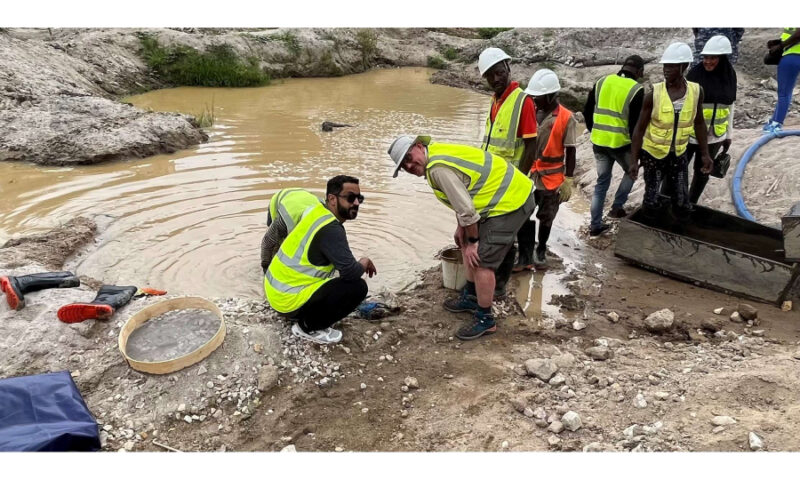Ahmed Bin Sulayem, Chair of the Kimberley Process (KP), recently concluded a comprehensive fact-finding mission to West Africa, specifically Sierra Leone and Ghana, recognizing both countries for their exemplary adherence to KP standards and setting a benchmark for global practices.
Strengthening Global Standards
The mission, led by the UAE delegation, was geared towards reinforcing best practices within the Kimberley Process membership. As part of the UAE’s ambitious “Year of Delivery,” the visit aimed at ensuring the Kimberley Process’s stringent controls and regulations are effectively implemented, fostering a more ethical and transparent global diamond trade.
Sierra Leone and Ghana’s commitment to the KP was highlighted as they showcased robust internal controls designed to curb smuggling and ensure diamonds are ethically sourced. Such mechanisms are pivotal in the KP’s overarching aim to prevent “blood diamonds” from entering the mainstream market, thereby ensuring the trade contributes positively to national development rather than fuelling conflict.
Key Visits and Discussions
During the delegation’s five-day tour, significant engagements included meetings with high-level government officials and industry stakeholders. In Sierra Leone, discussions with Vice President Mohamed Juldeh Jalloh underpinned the importance of collaborative efforts in enhancing the country’s diamond trade. The delegation’s itinerary also included visits to key sites such as the Meya Mine and artisanal mines, alongside Gemfair – a De Beers pilot programme aimed at providing a secure and transparent route for ethically-sourced Artisanal and Small-Scale Mining (ASM) diamonds.
In Ghana, the team met with representatives from the Ministry of Lands and Natural Resources and the Precious Minerals Marketing Company Limited (PMMC), reflecting on the country’s initiatives to maintain high standards of compliance with the KP.
Economic Impact and Future Directions
Sierra Leone’s diamond exports amounted to $143 million in 2022, demonstrating the sector’s significant contribution to the national economy. Conversely, Ghana’s exports stood at $3.9 million, underscoring varied scales of diamond mining and trading activities across the region.
Bin Sulayem’s statement, “In this year of delivery for the Kimberley Process, and the industry facing challenging geopolitical overreach, it’s crucial that we listen and learn from each other as we collectively shape the next generation, including a more digital version of the Kimberley Process,” signifies a forward-looking approach. Emphasizing digital innovations and international cooperation, the KP under UAE’s chairmanship envisions a transformative trajectory for the global diamond industry.
Implications for the Jewelry Industry
For professional jewellers and the wider jewelry industry, the developments in Sierra Leone and Ghana offer insightful perspectives on the evolving landscape of diamond sourcing. The emphasis on ethical practices, coupled with the potential for digital advancements in traceability, presents new opportunities for jewellers to align with consumer expectations for responsibly-sourced diamonds. As the Kimberley Process moves towards a more digital framework, jewellers should anticipate and adapt to these changes, ensuring their supply chains reflect the highest standards of ethical sourcing and transparency.
The upcoming KP intersessional meeting in Dubai in May 2024 is poised to further this agenda, potentially ushering in a new era for the diamond trade that harmonizes tradition with innovation. For jewellers, staying abreast of these developments is not just beneficial but essential, as it directly influences sourcing strategies, consumer trust, and ultimately, the industry’s sustainability and growth.






